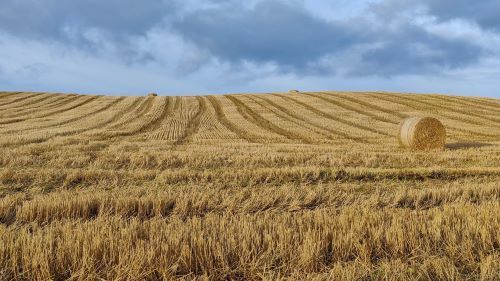
4 August 2023
A new report by the House of Lords Environment and Climate Change Committee highlights that the UK government is not on track to meet its commitment of protecting a third of English land and seas by 2030. An additional 23.5% of natural habitats in England are needed to be given protected status to achieve the '30 by 30' target. Failure to meet the target threatens soil health, pollinators, food security, and vulnerable species.
The government has published the third National Adaptation Programme, setting out actions it will take between 2023 and 2028 to adapt to climate change. It stated that the government aims to strengthen food security by supporting farmers to improve and protect soil health via the Environmental Land Management scheme (ELMs), and establish a healthy soil indicator.
Data from Defra shows that despite reductions in fertiliser use for key crops such as wheat and oilseed rape in 2022, British farmers managed to increase their yields by 2.4% compared to the 2010-19 average. The rise in fertiliser prices due to war in Ukraine led to the decrease in usage. Both nature-friendly farming and favourable weather conditions during 2022 may have helped.
The latest AHDB harvest report has highlighted that recent wet weather has had an impact on soils and harvest progress. Yields are ranging from 5.0 to 11.0 tonnes of wheat per hectare, with better yields reported on heavier soils, while lighter land suffered more from water stress during grain fill.
A survey commissioned by McCain found that a quarter of adults associate farmers with looking after livestock rather than growing fruit and vegetables. However, 65% of the respondents wanted to know more about where their food comes from, and 68% of Gen Z respondents wanted to make informed choices about the environmental impact of the products they buy.
PepsiCo and Walmart have announced a 7-year collaboration to invest $120 million in supporting US and Canadian farmers to improve soil health and water quality. They aim to adopt regenerative agriculture practices on more than 2 million acres of farmland. The partnership plans to support farmers through education, upfront investment and cost-sharing.
The German discount supermarket Penny is selling products at their "true cost" of environmental impacts, with some organic products costing 31% more and conventionally produced cheese almost twice as expensive. The campaign aims to raise awareness about the hidden environmental costs of food production, including impacts on nature, climate, water, soil, and health.
A new study demonstrates that organic agriculture, particularly in vineyards, can support biodiversity conservation and ecosystem services. The study also suggests that a combination of organic practices and specific non-organic management strategies, like the preservation of certain natural habitats can improve biodiversity and agricultural production simultaneously.